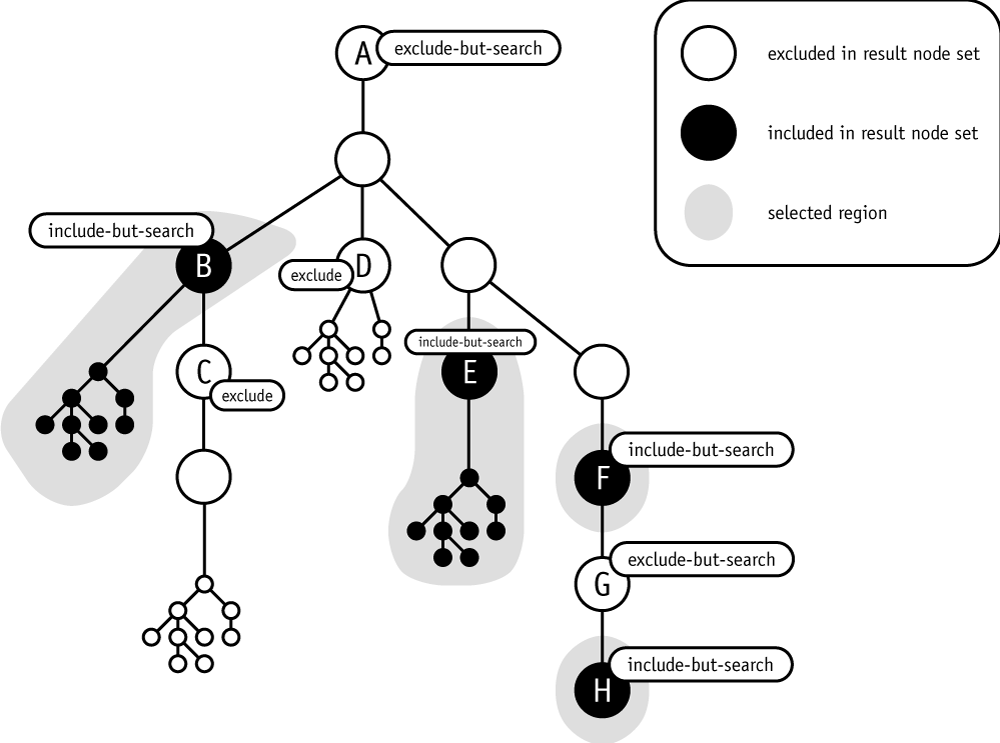- From: Christian Geuer-Pollmann <geuer-pollmann@nue.et-inf.uni-siegen.de>
- Date: Wed, 20 Mar 2002 00:23:40 +0100
- To: John Boyer <JBoyer@PureEdge.com>, reagle@w3.org
- Cc: w3c-ietf-xmldsig@w3.org
- Message-ID: <52945311.1016583820@pinkpanther>
Hi Joseph, ho John, maybe a picture says more than thousand words ;-)) (I renamed the include to include-but-search to indicate that it has to be traversed). Given the tree in the picture. I arbitrarily selected some nodes (single nodes on the right side or contingous areas on the left) which are to be selected by this xpath transform. Black nodes are to be included in the output, white nodes are to be omitted. The root node A is labeled "exclude-but-search". This means that it is not to be outputted, but some descendants (probably) are. The black node B on the left side is labeled "include-but-search" because itself is to be outputted and it's descendants must be traversed to copy them to the result node set. The unselected child C is labeled "exclude" because itself and _all_ it's descendants are omitted/not outputted. So we don't need the -but-search suffix because we won't find any selected nodes inside - this is an optimization. The unselected subtree D is in an area where no nodes are selected, but if we label it 'exclude', the algorithm won't traverse it and we can save time. But without that label, it'd work, though. The selected-subtree E in the middle is "include-but-search" because itself and all it's descendants are to be outputted. On the right side, we have this annoying exclude-but-search, include-but-search, exclude-but-search alternation because here are no nice subtrees which are the main focus of this transform but a 'real' nodeset which could also be handled by our old XPath transform... We have 7 contingous areas or nodes and NEED 7 labels (XPath evaluations) for this, while we can optimize the speed with 1 additional label (the "exclude" for node D). Is my idea now a little bit clearer now? Best regards, Christian
Attachments
- image/gif attachment: xpath2filter_tree.gif

Received on Tuesday, 19 March 2002 18:19:29 UTC